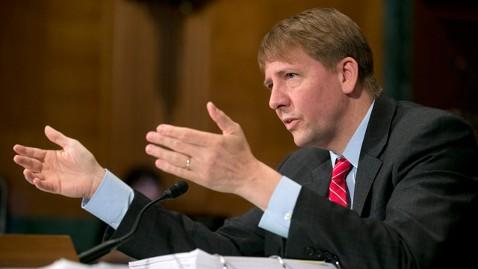
Former Director of the Consumer Financial protection Bureau (CFPB), Richard Cordray, issued a “White Paper” of proposals to current CFPB Director, Kathleen Kraninger as well as the two ranking House Financial Services Committee members and Senate Banking Committee members. Highlighting mitigation efforts that he feels should be implemented during the current COVID-19 Pandemic. Amongst those proposals, is a nationwide moratorium on repossession both during the crisis and it’s economic aftermath.
In his sixteen point list of suggestions, he takes jabs at mortgage servicers, accusing them of “indifference and ineptitude” in the last crisis and further presses the need for the CFPB to be pressing lenders to wave “overdraft fees, NSF fees, or late fees and by providing forbearance on loan payments. These initiatives must be simple and, if not automatic, must be easy to access.”
Most notable, Cordray advises that there is an entire industry whose business it is to repossess vehicles. What a shock! While that is quite a revelation to us, his desire for a complete moratorium both during the crisis and after, is of some concern if it were to achieve bipartisan support.
• Closely Monitor Efforts to Repossess Vehicles. There is an entire industry whose business is repossessing automobiles. Close efforts to police those companies are especially important for those consumers facing possible repossession of their vehicles. In much of the country, this is the only lifeline many families have: to get to work, to secure food, or to be able to access emergency medical care. The CFPB should lead an effort to work with Congress on putting in place a moratorium on auto repossessions for the duration of the crisis and its economic aftermath. It should also take steps to ensure that consumers facing possible repossession of their vehicles are informed, treated fairly, and have the remaining equity in their car or truck fully applied to the balance of their loan.
While no longer in the CFPB, Richard Cordray had been busy in California in helping that state develop their own “mini-CFPB” in the image of the Federal one. Cordray closes his paper with the following statement.
There is much important work to do here, and it demands the CFPB’s urgent focus. The economic crisis emerging in this country creates enormous and unavoidable problems and risks for many consumers. It is in difficult times that strong consumer protections are needed the most. The CFPB is well positioned to make a difference for large numbers of Americans, but it must confront the circumstances and act immediately to mitigate the harmful effects of this crisis. Those with oversight of the CFPB, including the American public, must make sure this happens.
While Senate Bill 3565, which proposed similar prohibitions, languishes in the Senate Banking, Housing and Urban affairs committee and is unlikely to be brought to vote in the senate, this renewed calling illustrates that there does seem to be some growing interest in imposing these moratoriums.










